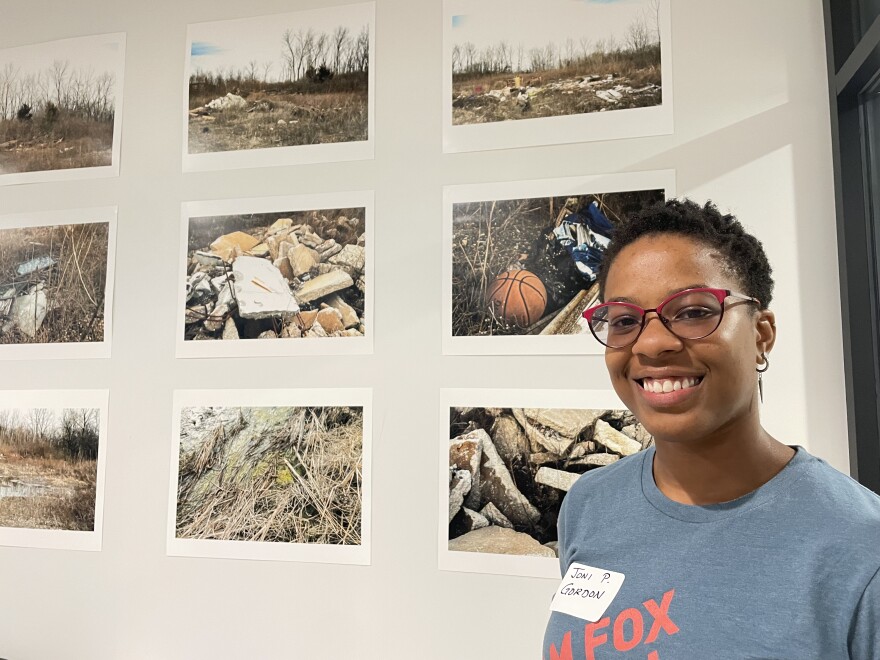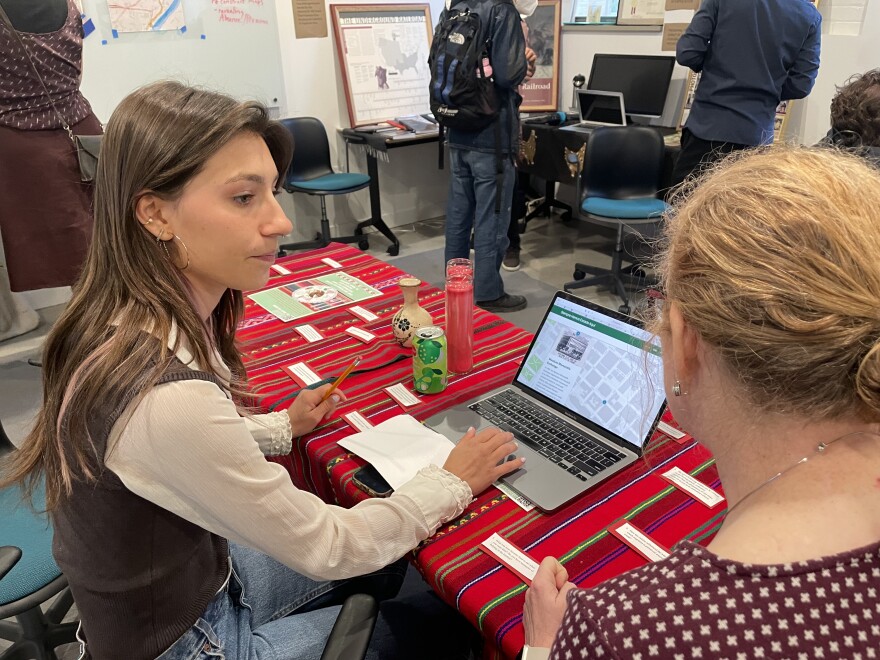People quietly chatter as a video of a jazz club plays out loud. Photography covers most of the walls. It’s all part of a showcase by the Public Humanities lab Memory for the Future based out of Washington University. The yearlong workshop studies histories and legacies of colonialism, slavery and genocide in Missouri.

“People often mistake these kinds of efforts as merely symbolic sorts of gestures that don't have substantive significance, you know, that don't involve, say, the redistribution of wealth or the creation of policy that addresses issues like, you know, systematic violence today. But our thinking is that we need this change in the cultural valuation realm," lab co-lead Geoff Ward said about reparative memory work.
A group of three led the ten lab participants in the public humanities lab. Ward is a professor of African and African-American Studies as well as the director of the WashU & Slavery Project.
He was joined by Anika Walke, associate professor of history, women, gender and sexuality studies, Jewish, Islamic and Middle Eastern studies and global studies, as well as Santiago Rozo Sánchez, the postdoctoral fellow with the studio lab who completed his PhD in Hispanic Studies.
"I think one of the fundamental harms that we're haunted by, in terms of histories of slavery and racialized violence of various sorts, is that they've institutionalized disregard for certain kinds of people, and institutionalized disrespect," Ward said. "So how do we need to find ways as contemporaries to reorient ourselves to these collectives in their histories and their interests, and to build common cause?"
The studio lab participants traveled throughout the state and the region to inform their work—which features a project to restore grave markers in Black cemeteries and a podcast and photography series about Black communities who lived through the failed housing project of Pruitt-Igoe.

"One of the focuses of our project is to focus on the positives of Pruitt-Igoe, because a lot of public memory of Pruitt-Igoe focuses on the negatives. How, like, there was a lot of crime, a lot of, as I said, poor maintenance. But a lot of the former residents remember their childhood as really positive there, which I don't think is highlighted in any public academia," Dana Hogan, one of the podcast creators of Pruitt-Igoe: Stories from Within, said.

Dozens of members of the public attended the showcase, including John Early. As he walked in, he said he was particularly interested in learning about how racism has embedded itself into society, and how creative explorations can help address that.
"I'm in this processing stage, you know, how my perspective is shifting. Having certain expectations coming in and then encountering some things that maybe I did expect [and] some things I didn't expect, I think both the breadth and depth of the projects, how they engage with different publics...I found really engaging," he said.
Jade Pita is a participant who created a digital map of Mexican American history in St. Louis and the Midwest. It’s called Siempre Hemos Estado Aqui [We have always been here].
“These are topics that apply to the Latin experience and the Mexican experience in the United States as a whole," Pita said. A lot of her work focuses on guest worker programs in Missouri. "That is something that I definitely want to address when it comes to legacies of colonialism ...They are exploitive labor practices that exploit people, exploit land, to make the most amount of profit possible, which is a practice that is rooted in enslavement. And I think it's time that St. Louis talks about that history."
The leaders of the humanities lab hope to continue this reparative work for Missouri communities. And hope the memories the lab highlights can better impact the state in the future.
Ward concluded by saying "The theory is that in collectively remembering these histories and acknowledging their legacies and so forth, we can build greater capacity, collectively, to shape a better future."





